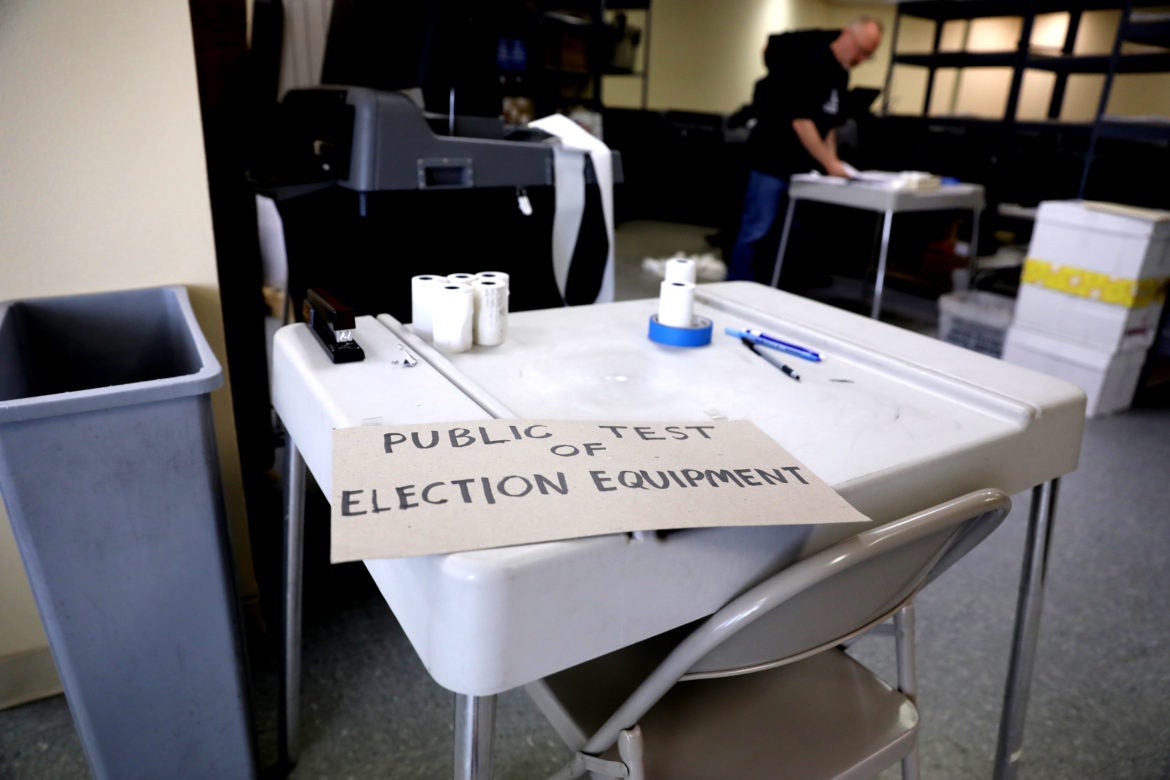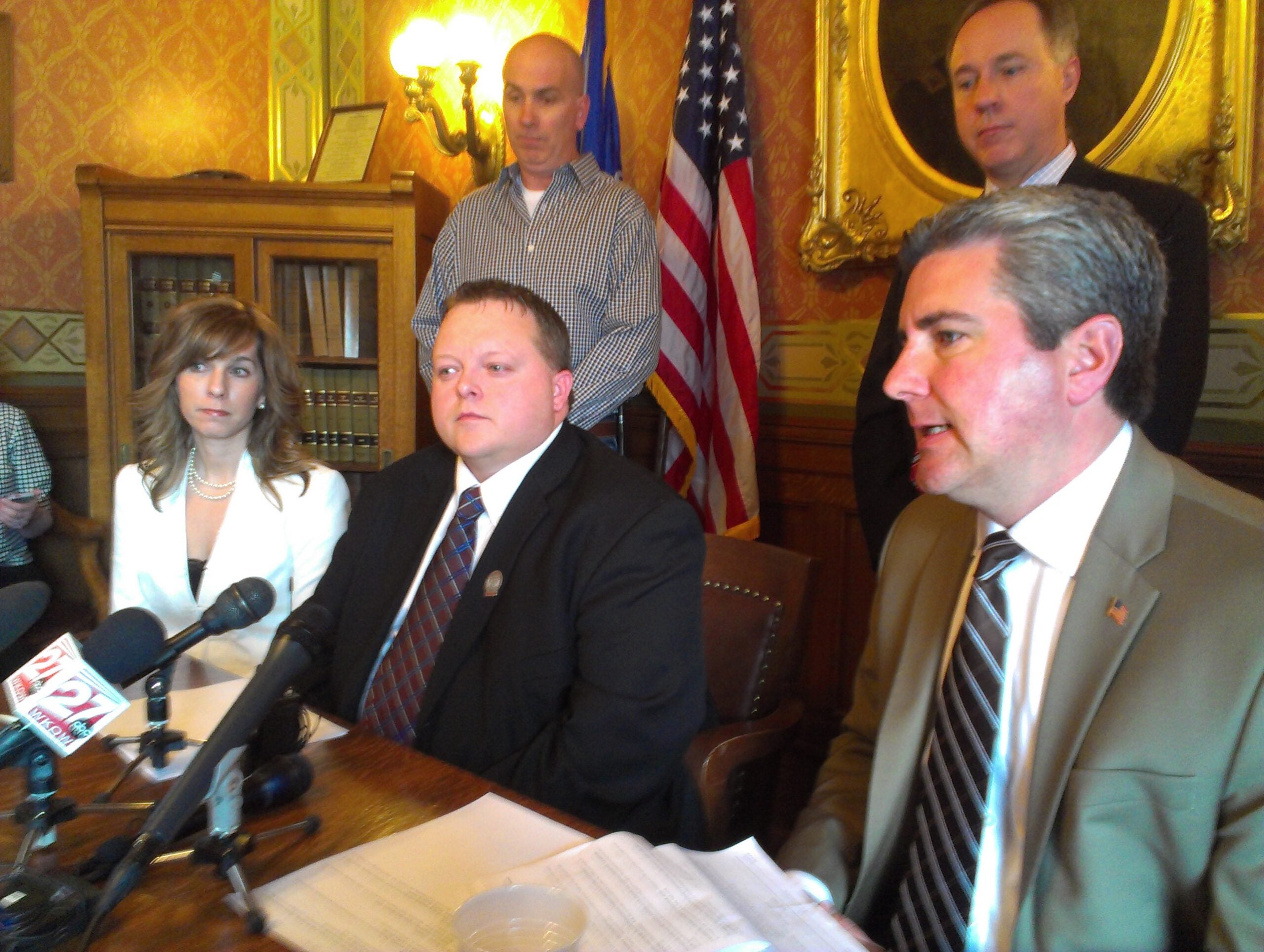Roughly a year before what is almost certain to be an intensely polarizing presidential election, an unlikely trend is happening in the Wisconsin Legislature: Republicans and Democrats are working together on election bills.
That’s not to say that there’s broad consensus at the state Capitol, where Republicans have floated the idea of impeaching Justice Janet Protasiewicz over a redistricting lawsuit and Gov. Tony Evers vetoed nearly 20 GOP election bills last session alone.
But the Assembly Committee on Campaigns and Elections heard testimony on several bills Thursday that have garnered support from both Republicans and Democrats. They include:
Stay informed on the latest news
Sign up for WPR’s email newsletter.
- A bill to adjust the timelines for clerks to send absentee ballots in presidential primaries.
- A plan to eliminate a requirement that voter identification numbers be marked on the back of absentee ballots.
- A measure that would require elected officials to serve as election workers.
The panel also voted unanimously in favor of another bipartisan bill that would allow absentee voters to sign up for text messages alerting them that their ballots have been received.
While members from the two parties didn’t agree on everything at Thursday’s hearing, some commented on how rare it was to see bipartisan support for election related bills.
Rep. Scott Krug, R-Nekoosa, who chairs the Assembly panel, told colleagues he thinks election bills have been delayed because “people are afraid to write bills that are going to make things better.” He referenced a recent incident in which committee member Rep. Donna Rozar, R-Marshfield, was “verbally accosted” by an unnamed fellow Republican about an election bill she introduced with a Democrat.
“So, as we move forward in the next three to four weeks, we are going to hear a lot more about that and there are going to be a lot more instances where these things may happen,” Krug said. “So, I wanted to use my chairman’s discretion today to remind people to not be intimidated about things that we need to get done for the state of Wisconsin.”
During the committee’s discussion Thursday, Rozar declined to name the lawmaker or talk about what happened. She said she understands there are a lot of concerns about election integrity in Wisconsin and “we can agree to disagree without being accosted.”
“I don’t think bills should be discredited just because we’re willing to work with members on the other side of the aisle on something that makes sense,” Rozar said. “And, I think that was the thing that bothered me the most about being confronted like that.”
Rep. Lee Snodgrass, D-Appleton, is a co-author with Rozar on the bill eliminating a requirement that clerks write poll book numbers on the backs of absentee ballots processed in a central count location. Snodgrass, Rozar and clerks testified the change is needed because images of ballots are public records, and unless the numbers are redacted, they could show how people voted.
“There has, I think especially recently, been sort of a historical mistrust between the two sides of the aisle. I think that’s understandable,” Snodgrass said. “I understand it’s difficult to work together when we have very different ideological views. But on the very rare instances where we agree on something, I really hope that we can just sort of take it at face value, that there’s nothing nefarious, we have no plot.”
Krug joked that bipartisanship in the Legislature was common in the 1980s and 1990s. He said his goal is to get the bills discussed Thursday and several others to the Assembly floor for a vote by Nov. 14.
The examples of bipartisanship haven’t been limited to Krug’s committee. On Tuesday, the state Senate passed bills dealing with special election costs, broadcasting election night proceedings, protecting election officials and the timeline for transmitting presidential primary absentee ballots. All four had support from both Democrats and Republicans.
Wisconsin Public Radio, © Copyright 2024, Board of Regents of the University of Wisconsin System and Wisconsin Educational Communications Board.






